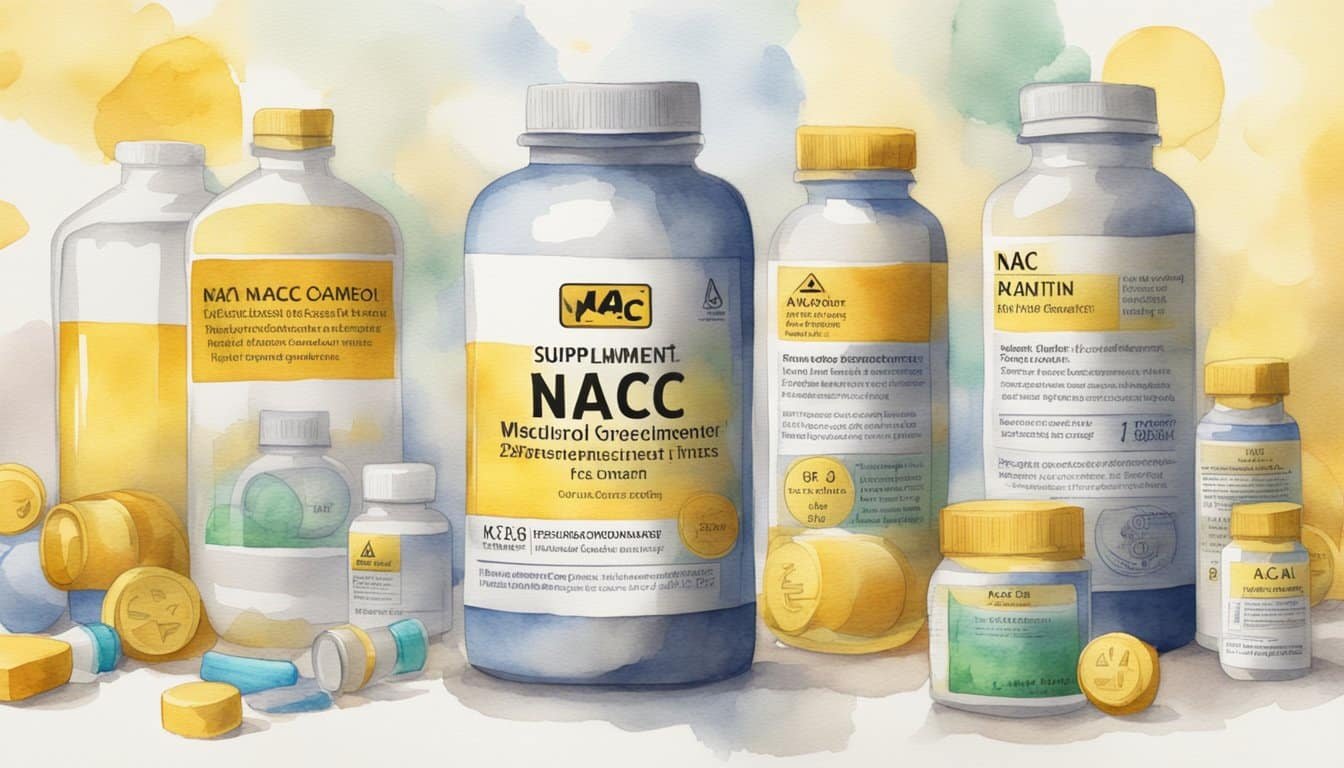Understanding NAC and Its Uses

N-Acetylcysteine, commonly known as NAC, is a powerful supplement recognized for its antioxidant properties and role in promoting respiratory health and supporting the body’s detoxification process.
Benefits and Common Applications
NAC, derived from the amino acid cysteine, is essential in replenishing the most important antioxidant in the body, glutathione. This Guardian of the Cells is pivotal in reducing oxidative stress, which if unchecked, can contribute to several chronic conditions. As a supplement, NAC has been used for its health benefits, notably for conditions such as chronic bronchitis, helping to break down mucus and ease breathing. Healthcare providers also value NAC for its protective effects against acetaminophen toxicity and its potential therapeutic uses in various ailments due to its ability to modulate glutathione levels.
Dietary Sources and Forms
While the body can produce cysteine, the foundation for NAC, dietary sources are also crucial. Foods rich in proteins like poultry, yogurt, and cheese are good sources of cysteine. As for supplemental forms, NAC is available over the counter as tablets or capsules. It’s also administered intravenously or inhaled as a drug in specific medical scenarios. However, it’s essential to consult a healthcare provider before starting any new supplement regimen, as NAC can interact with certain drugs and its safety profile requires careful consideration.
Potential Risks and Side Effects of NAC
While N-acetyl cysteine (NAC) is often used for its potential health benefits, certain risks and side effects can’t be ignored. From liver and kidney concerns to possible allergic reactions, it’s essential to be aware of how NAC might affect different aspects of health.
Liver and Kidney Considerations
NAC has a complicated relationship with the liver and kidneys. On one hand, it’s administered in cases of acetaminophen overdose to support liver health, but on the flip side, there’s a need for caution. Large doses might stress these vital organs, especially for individuals already dealing with liver or kidney issues. Healthcare providers usually keep a watchful eye on the function of these organs when NAC is used in high doses or for extended periods.
- Normal doses: Typically safe for liver and kidney function.
- High doses: Potential for toxicity; caution advised.
Allergic Reactions and Side Effects
People typically find NAC to be safe with limited issues, but there’s always a chance for adverse reactions. The spectrum of side effects ranges from mild — like nausea and vomiting — to more severe reactions such as a rash or even anaphylaxis in rare instances. Not everyone will experience these effects, and most side effects are associated with the higher end of the dose spectrum.
- Common side effects: Nausea, vomiting, diarrhea.
- Severe reactions: Rash, potential for anaphylaxis.
Interactions With Medications
Interactions between NAC and other medications can pose a range of risks. For individuals on an array of treatments, especially those that might expose them to the danger of bleeding, it’s crucial to consult with a healthcare provider. NAC can either potentiate or weaken the effect of various drugs, creating a delicate balancing act for health professionals to manage.
- Risk of bleeding: Caution with blood-thinning medications.
- Drug interactions: Careful management required to prevent adverse effects.
While the Food and Drug Administration (FDA) regards NAC as generally safe, individual responses vary. It’s advised to keep healthcare providers in the loop, particularly when considering NAC supplementation.
Regulatory Status and Quality Considerations

Navigating the world of supplements can be like venturing through a wild jungle. For those curious about N-acetylcysteine (NAC), understanding the Food and Drug Administration (FDA) stance and ensuring product quality are crucial breadcrumb trails to follow.
FDA Regulations on NAC Supplements
NAC, while used as a prescription drug for decades, tiptoes on the line between dietary supplement and medication. The FDA has categorized NAC as a supplement for a while, yet, in recent years, the agency has scrutinized the inclusion of NAC in dietary supplements, questioning whether it should be available over-the-counter. This scrutiny has led to debates about its regulatory status, which can impact its availability and how it’s marketed to the public.
Ensuring Product Quality and Safety
When it comes to safety and quality, it’s not just about what’s on the label but what’s in the bottle. To find a reliable NAC supplement, folks should look for products that have been third-party tested by organizations like USP or NSF. But don’t just take a brand’s word for it – healthcare providers often encourage a chat before starting any new supplement regimen. Consistent manufacturing quality checks are vital in ensuring that NAC supplements are safe, contain what they say they do, and are free from harmful contaminants.

